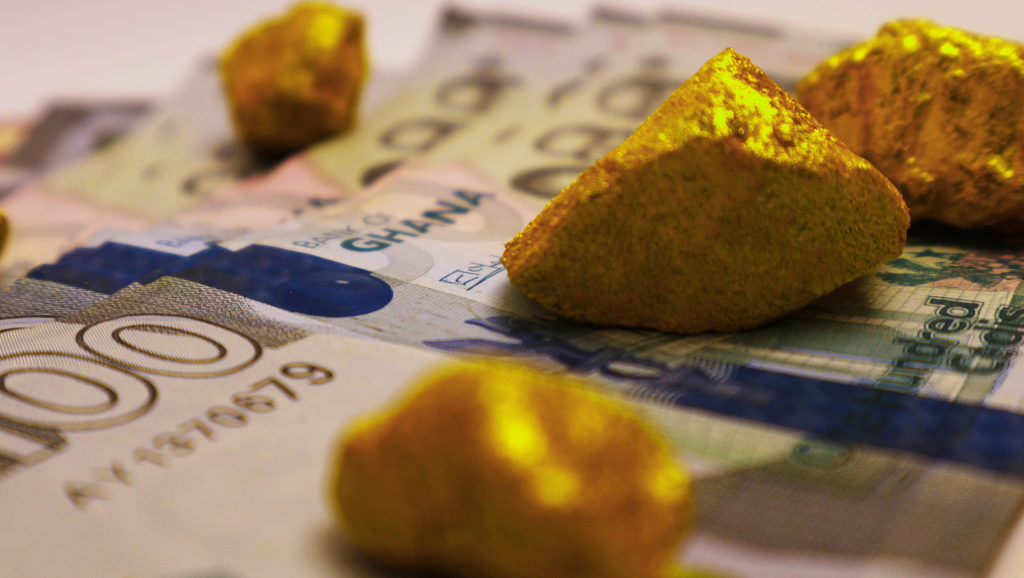COSTCO SELLS GOLD BARS OFF SHELF
Reuters | January 29, 2025 |

The Bank of England’s gold vaults. (File image)
London bullion market players are racing to borrow gold from central banks, which store bullion in London, following a surge in gold deliveries to the United States on speculation of potential import tariffs there, two sources familiar with the matter said.

The minimum waiting time to load gold out of the Bank of England, which stores gold for central banks, has reached four weeks, one of the sources said. In normal times, the release time is a few days or a week.
The BoE declined to comment when asked about the queue.
US President Donald Trump has not mentioned precious metals in his tariff plans, but the risk has been enough to boost gold deliveries to New York as part of the market sought to hedge its positions on the US COMEX exchange and part sought to benefit from a jump in the price premium of COMEX futures over London spot prices.
London is home to the world’s largest over-the-counter gold trading hub, where market players trade directly with each other rather than via an exchange.
“The key with the BoE is that they are not a commercial vault so not prepared to handle the onslaught of gold borrowing banks are requesting from the central banks,” said Robert Gottlieb, an industry expert and former head of precious metals at Koch Supply and Trading.
The size of so-called Loco London free float, the amount of gold readily available to the London OTC market stored in London, has fallen after the jump in supplies to New York.
Over the last two months, 12.2 million troy ounces of gold were delivered to COMEX-approved warehouses, raising stocks there by 70% to 29.8 million ounces, the highest since August 2022.
Reports of the flow of gold to New York attracted the attention of the British parliament’s Treasury Committee, one of whose members asked BoE Governor Andrew Bailey on Wednesday whether he saw any risks in this development.
“We are not in the gold standard anymore, it doesn’t have significance for policy in that sense,” Bailey replied, referring to an extinct monetary system where gold backed the value of a currency.
However, London remained a major gold market, and “if you want to be involved in that market and you want to trade and use your gold, you really need to have it in London,” Bailey added.
Deliveries to the US left less free-float metal in London vaults, the metal that is not owned by central banks or holdings of physically-backed gold exchange-traded funds. This in turn boosted demand from players in London who are ready to lease their gold and make it available to the OTC market.
Liquidity challenges in other large trading hubs are less pronounced than in London but are being felt globally, said Alexander Zumpfe, a precious metals trader at Heraeus Metals.
“The logistical complexities of moving large quantities of gold, particularly from Europe to the US, are amplifying these stresses. Asia has also seen some knock-on effects, particularly in markets like Singapore and Hong Kong,” Zumpfe added.
(By Polina Devitt, Pratima Desai and David Milliken; Editing by Mark Potter and Chris Reese)
Reuters | January 29, 2025 |

The Bank of England’s gold vaults. (File image)
London bullion market players are racing to borrow gold from central banks, which store bullion in London, following a surge in gold deliveries to the United States on speculation of potential import tariffs there, two sources familiar with the matter said.

The minimum waiting time to load gold out of the Bank of England, which stores gold for central banks, has reached four weeks, one of the sources said. In normal times, the release time is a few days or a week.
The BoE declined to comment when asked about the queue.
US President Donald Trump has not mentioned precious metals in his tariff plans, but the risk has been enough to boost gold deliveries to New York as part of the market sought to hedge its positions on the US COMEX exchange and part sought to benefit from a jump in the price premium of COMEX futures over London spot prices.
London is home to the world’s largest over-the-counter gold trading hub, where market players trade directly with each other rather than via an exchange.
“The key with the BoE is that they are not a commercial vault so not prepared to handle the onslaught of gold borrowing banks are requesting from the central banks,” said Robert Gottlieb, an industry expert and former head of precious metals at Koch Supply and Trading.
The size of so-called Loco London free float, the amount of gold readily available to the London OTC market stored in London, has fallen after the jump in supplies to New York.
Over the last two months, 12.2 million troy ounces of gold were delivered to COMEX-approved warehouses, raising stocks there by 70% to 29.8 million ounces, the highest since August 2022.
Reports of the flow of gold to New York attracted the attention of the British parliament’s Treasury Committee, one of whose members asked BoE Governor Andrew Bailey on Wednesday whether he saw any risks in this development.
“We are not in the gold standard anymore, it doesn’t have significance for policy in that sense,” Bailey replied, referring to an extinct monetary system where gold backed the value of a currency.
However, London remained a major gold market, and “if you want to be involved in that market and you want to trade and use your gold, you really need to have it in London,” Bailey added.
Deliveries to the US left less free-float metal in London vaults, the metal that is not owned by central banks or holdings of physically-backed gold exchange-traded funds. This in turn boosted demand from players in London who are ready to lease their gold and make it available to the OTC market.
Liquidity challenges in other large trading hubs are less pronounced than in London but are being felt globally, said Alexander Zumpfe, a precious metals trader at Heraeus Metals.
“The logistical complexities of moving large quantities of gold, particularly from Europe to the US, are amplifying these stresses. Asia has also seen some knock-on effects, particularly in markets like Singapore and Hong Kong,” Zumpfe added.
(By Polina Devitt, Pratima Desai and David Milliken; Editing by Mark Potter and Chris Reese)
Ghana plans gold board to increase earnings and curb smuggling
Reuters | January 27, 2025 |

Stock image.
Ghana plans to launch a Gold Board to streamline gold purchases from small-scale miners, increase earnings and reduce smuggling, the west African country’s newly appointed finance minister Cassiel Ato Forson said on Monday.

The Gold Board will allow Africa’s leading gold producer to increase its benefits from the precious metal’s sales and help maintain the national currency’s stability.
Data from Ghana’s central bank showed that total gold exports for 2024 stood at $11.64 billion, a 53.2% year-on-year increase which helped nearly double Ghana’s trade surplus to $4.98 billion in 2024.
The minister said nearly $5 billion worth of gold exported last year was from legal small-scale miners.
“The time has come for Ghana to expand beyond royalties and taxes by harnessing the entire value chain of gold … from extraction to refinery, value addition and marketing, both locally and internationally,” Forson said.
The board will be launched in early March, he added.
The gold program will be implemented with the aim of pursuing the stringent London Bullion Market Association certification, which prohibits refiners from handling gold from sources contributing to human rights abuses, conflict, crime or environmental degradation.
“Currently, the chaos in the Ghana’s gold purchasing sector prevents the nation from fully benefiting from its gold resources,” Forson said.
The board will act as the sole buyer of gold through licence aggregators and local traders, shifting away from the system where Ghanaians and foreign companies with export licences could purchase it without going through the approved rules.
“This fragmented, uncoordinated, and unregulated system has led to a widespread gold smuggling and deprived the state of much-needed foreign exchange,” Forson said.
(By Christian Akorlie and Anait Miridzhanian; Editing by David Evans)
Reuters | January 27, 2025 |

Stock image.
Ghana plans to launch a Gold Board to streamline gold purchases from small-scale miners, increase earnings and reduce smuggling, the west African country’s newly appointed finance minister Cassiel Ato Forson said on Monday.

The Gold Board will allow Africa’s leading gold producer to increase its benefits from the precious metal’s sales and help maintain the national currency’s stability.
Data from Ghana’s central bank showed that total gold exports for 2024 stood at $11.64 billion, a 53.2% year-on-year increase which helped nearly double Ghana’s trade surplus to $4.98 billion in 2024.
The minister said nearly $5 billion worth of gold exported last year was from legal small-scale miners.
“The time has come for Ghana to expand beyond royalties and taxes by harnessing the entire value chain of gold … from extraction to refinery, value addition and marketing, both locally and internationally,” Forson said.
The board will be launched in early March, he added.
The gold program will be implemented with the aim of pursuing the stringent London Bullion Market Association certification, which prohibits refiners from handling gold from sources contributing to human rights abuses, conflict, crime or environmental degradation.
“Currently, the chaos in the Ghana’s gold purchasing sector prevents the nation from fully benefiting from its gold resources,” Forson said.
The board will act as the sole buyer of gold through licence aggregators and local traders, shifting away from the system where Ghanaians and foreign companies with export licences could purchase it without going through the approved rules.
“This fragmented, uncoordinated, and unregulated system has led to a widespread gold smuggling and deprived the state of much-needed foreign exchange,” Forson said.
(By Christian Akorlie and Anait Miridzhanian; Editing by David Evans)
No comments:
Post a Comment